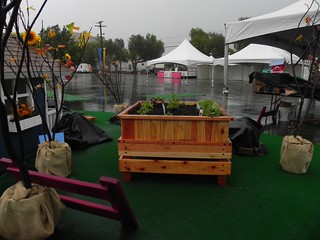When you take the time to apply the correct organic gardening strategies and products, it really does show. It demonstrates that you are concerned about getting the most out of your organic plants. As any other skill, there is always more to learn. The following article will help you with this.
Your children will enjoy being involved with you in the organic gardening endeavors. A garden can provide a wonderful learning experience for children, and it gives you a chance to bond while producing healthy food.
Try to put an aspirin in the water for fighting plant diseases. Dissolve aspirin per gallon of water for a bucket and administer to your plants. You simply have to spray the solution on them in warding off diseases. Try to apply the mixture to the plants with this around every three weeks.
If you’re growing indoor organic plants, it is vital to make sure that the right amount of light reaches them. If you want indoor plants, find plants that can grow in medium or low-light environments. You could also consider using artificial lighting to help.
After your seeds have sprouted, it is not as important to keep them warm. Keep an eye on your seeds to know when you should do this.
Make the most of the time spent in your garden every day. Don’t waste your time looking for that packet of seeds or spade. Prepare all the tools you need before you go out to work on your garden, and then put them away neatly when finished. If you use lots of tools, try using some pants with pockets in them.
Have some plastic bags on hand that you can put over dirty gardening shoes if they are muddy.
Grass Clippings
Your compost pile should contain green plants and dry plant materials. Green plant material consists of spent flowers, fruit waste, grass clippings, grass clippings, and fruit and vegetable waste. Dried plant material consists of sawdust, sawdust, cardboard, cardboard, and cut-up and dried wood material. Avoid ashes, meat, diseased plants and meat-eating animal manure.
You now have the skills, the tools, and the equipment necessary to apply these strategies to your own organic garden. This is awesome! These tips were specifically crafted to enhance your organic gardening techniques. A gardener should never be done learning! You have likely, however, learned at least one thing that will be well put to use in your garden.

